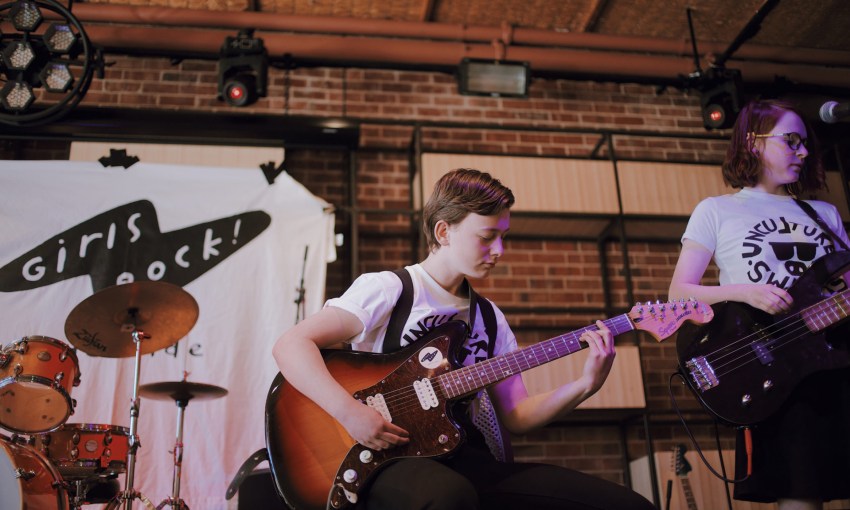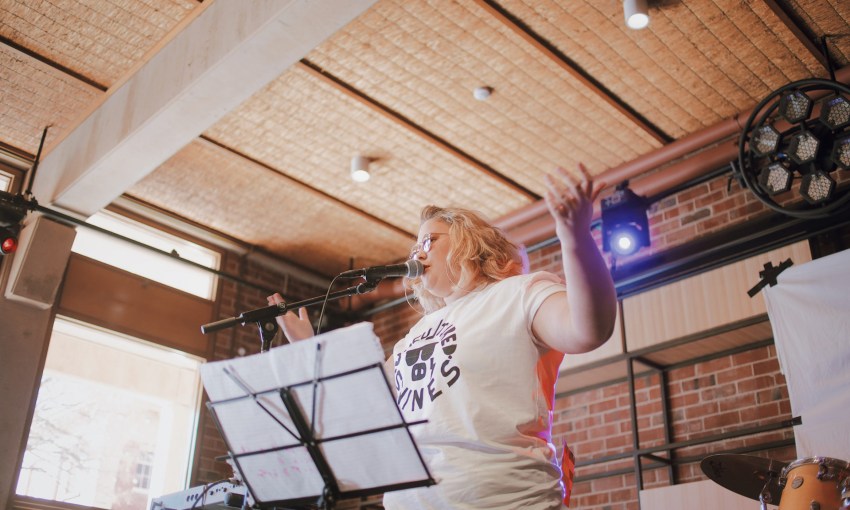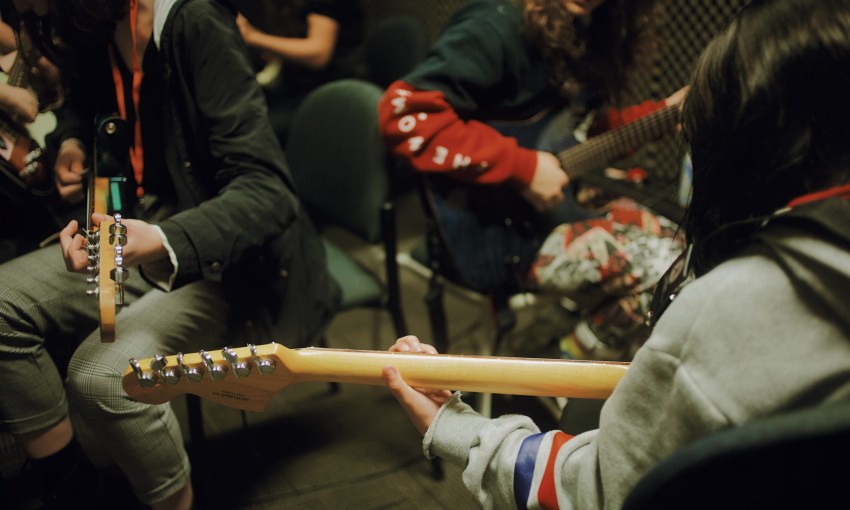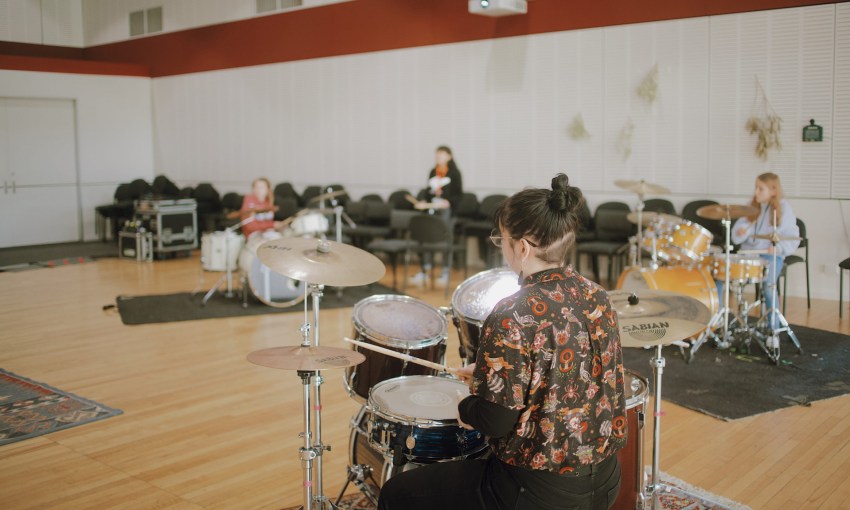Girls Rock! Adelaide, the organisation promoting and mentoring young, gender-diverse musicians in South Australia, will hold a five-day music camp next month to turn budding musicians into stage-ready PJ Harveys and Kim Gordons.
Girls Rock! Adelaide’s summer camp is back in 2021
As the frontwoman of band Ponytail Kink and her own solo project BUCKO, Adelaide musician Hannah Fairlamb has experienced many forms of gendered harassment within the music industry.
If she, as an established artist, was growing tired of dealing with this element of the industry, Hannah was concerned about how other young women – and trans- and non-binary-identifying people – felt about their future in music.
Girls Rock! Adelaide summer camp
11—16 January
Goodwood Community Centre
32/34 Rosa St, Goodwood 5034
All summer camp spaces are filled but join the waitlist here.
This concern, coupled with her experience working in gender policy for the South Australian Office for Women, led her to form Girls Rock! Adelaide.
“Girls Rock! is a way for me to combine my interests in gender equality and music into a really practical exercise in creating space, because that’s literally what we do,” Hannah tells CityMag.
“We provide musical instruments for young people, at any level. Even with absolutely zero experience, they can come along. They might not have touched a musical instrument before.
“And that’s what I love about Girls Rock – it’s a really practical, hands-on, literal carving out of space, where we provide room and mentors and volunteers to support music development.”
In 2019, Girls Rock! Adelaide held its first summer camp – a five-day musical intensive program for anyone who identifies as non-cis-male and is aged between 10 and 17.
The summer camp will return for a 2021 iteration, but despite its name is not a sleepover event. Each day boasts a bill of songwriting, zine-making, screen-printing and confidence-boosting exercises at the Goodwood Community Centre from 11—16 January.
“There’s instrument lessons every day, there’s band practice every day. There’s lots of team-building exercises, too,” Hannah says.
“All of our volunteers are female, trans and non-binary people, so there’s lots of role models around, showing that there’s different career paths and different ways to express yourself in the world.”
Female and non-binary representation in the music industry has been known to be a problem for some time, and is illustrated well on the Instagram page @lineupswithoutmales, dedicated to showing the gender imbalance on festival lineups.
According to a report by Triple J’s Hack, only 32 per cent of the acts on Groovin the Moo’s 2018 lineup were female artists or were a band with at least one non-male member. Similarly, Laneway Festival’s lineup that year was 38 per cent female artists or bands that feature at least one non-male member.
Gender representation in radio play is also an issue. Hack reported listeners in 2018 were more likely to hear songs performed by men than women, although the gap appeared to be closing. Voters in Triple J’s Hottest 100 reinforced the imbalance, though, voting in 63 songs by solo-male artists or all-male acts.
In addition to visibility, this problem also has consequences for who in the industry gets paid. That same report again says only 19 per cent of Australasian Performing Right Association (APRA) payments to songwriters in 2018 were made to women.
These are all figures CityMag has parsed through before, such as in our exploration of how Adelaide’s nascent music streaming industry was being set up.
Hannah calls upon her own research when arguing the case for Girls Rock!’s existence.
“There was a great report [from a] couple of years ago with young people who identified as gender diverse, and a lot of those young people said that music was one of the main things that helped them feel better when they were feeling down,” she says.
“We’ve taken that on board and tried to incorporate that into creating the safe space that we aim for at Girls Rock!”
Hannah says her team is also aware there may be some plucky musos wanting to participate but who are financially strapped, or are located in regional South Australia and need accommodation assistance in order to join in.
A Girls Rock! Adelaide fundraiser was held in August this year for this cause, asking the public to donate to a fund that would offer partial and full scholarships for people in those circumstances. Hannah was pleased with the generosity the organisation received.
“I think it shows that there are people who understand that the music industry is male-dominated and it can be really hard to break through that psychological thinking: ‘Oh, this isn’t a place for me, or ‘No one wants to hear me,’ or ‘No one wants to help me,’” she says.
“This was the practical way for them to donate funds towards something that they felt would be a real equaliser in that area.”
Although all spots in the 2021 summer camp season have been filled, Girls Rock! Adelaide also offers other event opportunities, such as setting up stages at festivals like Laneway and A Day of Clarity. Head to their website to find out more.

At the end of the five days, all students get the opportunity to perform live







